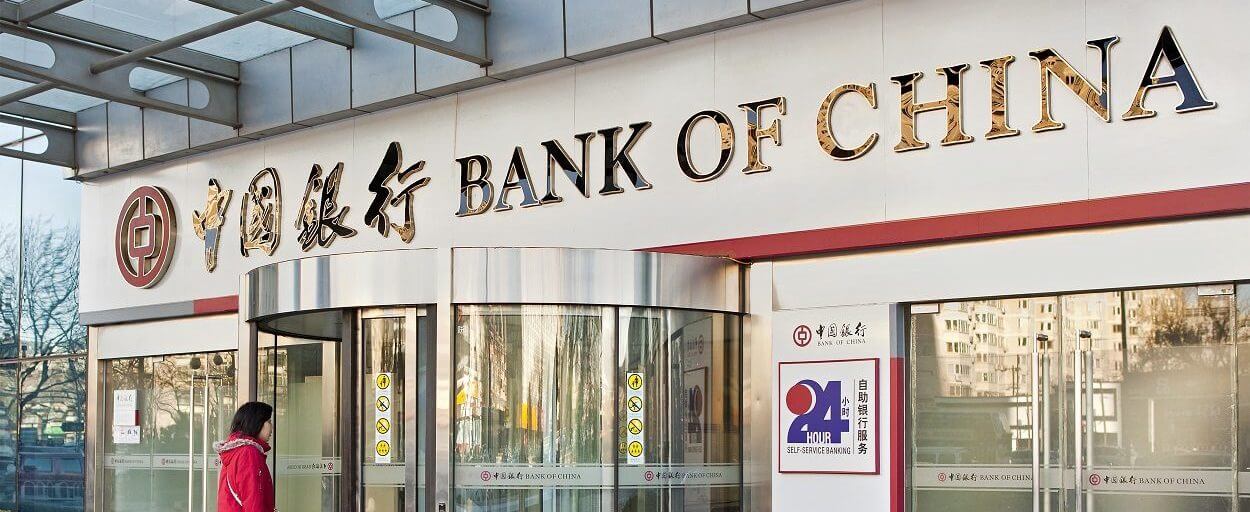What is a Business Bank Account?
A business bank account is a bank account used by business owners to carry out corporate transactions, in addition to being a separate account that allows businesses to effectively manage their finances and tax obligations. While business bank accounts operate similarly to a standard personal bank account, users often benefit from additional services such as salary processing tools and foreign currency transaction capabilities.
This article discusses the importance of commercial bank accounts in China as part of navigating the complex banking system in the country, as well as the process required to open and manage specific accounts for your enterprise.
China’s Banking System
Banking in China has continually evolved over time, ever since the government opened up the country’s banking system in the 1980s. Previously, banking operations in China had been controlled by the People’s Bank of China, however, a number of specialized institutions have emerged as part of the country’s effort to globalize its market economy. As of 2020, the country’s banking is the largest in the world, with over USD 49 trillion in assets.
The Chinese Banking Insurance Regulatory Commission regulates and controls activities of all banking institutions in the country including oversight of any liquidity or solvency problems for specific banks as well as approving of expansions in the sector.
The People’s Bank of China additionally serves as an authoritative entity responsible for the formulation and regulation of monetary policy, maintaining bank sector’s payments, managing foreign exchange and gold reserves as well as the clearing of any settlement systems. The central bank also oversees the State Administration of Foreign Exchange (SAFE) for establishing foreign-exchange policies.
The 5 Specialized Chinese Banks
The 5 specialized banks established by the government include:
- The Industrial and Commercial Bank of China (ICBC)
- China Construction Bank (CCB)
- Bank of Communications (BOCOM)
- Bank of China (BOC)
- The Agricultural Bank of China (ABC)
The specialized banks are all publicly traded companies, despite majority control remaining with the state. Moreover, many city commercial banks and banks with a joint-stock structure have been allowed to operate in China, while branches of foreign banking institutions have emerged in the country to allow for further investment into the local banking system.
Other major Chinese banks include the China Merchants Bank, Postal Savings Bank (PSBC) and city banks such as the Bank of Shanghai and the Bank of Beijing. Active international banks with a large presence in China come mainly from Europe, the United States and East Asia, with major players such as HSBC, Citibank and Standard Chartered in the market.
Types of Bank Accounts
Capital must be injected in the following bank accounts in order for a foreign subsidiary in China to be operational:
RMB Basic Bank Account
The RMB Basic Account is the company’s main business account used for daily transactions. It is the first business account a company must open in China and will be required, in order to open any further bank accounts.
For cash withdrawals, salary payments and tax payments on behalf of the company, the RMB Basic Account is the only account that can be used. Companies are advised to check whether the bank account can be linked with tax and social security systems, as the tax system in China allows for automatic tax payments to be made.
In accordance with the People’s Bank of China, companies are only allowed to set up one RMB Basic Account with an individual bank. The company will receive a Bank Opening Certificate once the account is opened, which will be required for certain applications, such as applications with a government institution.
Daily transactions can be completed through an online banking system with the use of online banking tokens. It is possible to receive funds of different currencies from abroad in the RMB Basic Account, despite the account mainly used for transactions in RMB. The funds need to be converted into RMB through the bank before arrival in the bank account.
Foreign Capital Account
The Foreign Capital Account is the second account required when establishing a business in China for foreign invested enterprises. The main purpose of this account is to receive foreign capital injections from shareholders.
A Foreign Capital Account should always be set up through the same bank used for opening the RMB Basic Account. While not a strict requirement, it is always advisable to set up the Foreign Capital Account with the same bank as where a company has opened its RMB Basic Account for practicality purposes. The investor is able to choose the currency in which the company wishes to inject the capital. Registered capital for capital injections can also be denominated in RMB, however the company will need to then purchase RMB to transfer in the account. Common currencies used to denominate registered capital are USD, EUR or GBP.
The company is generally not able to freely make use of the funds after the funds have been injected in a Foreign Capital Account. Therefore, the company can either make payments through a Foreign Capital Account directly by invoice and contract or convert the amount through a petty cash conversion onto the RMB Basic Account. Monthly salaries, such as salaries, rent and tax payments can be paid for with petty cash. Most banks typically limit the amount of petty cash conversion for one time from USD 50,000 to USD 200,000. A company will further be required to provide supporting documentation for all transactions and conversions to be verified.
Current Account
Additional current accounts may be necessary, in addition to an RMB Basic Account and Foreign Capital Account. The first purpose for opening a current account is when companies want to process international transactions, through the Chinese subsidiary linked to the bank used in their home country, when the function of many foreign banks in China is limited.
Secondly, additional foreign currency current accounts can be used if the company processes many international transactions in a foreign currency, as transactions through the RMB Basic Account will require conversions to and from RMB, which will not be necessary with a foreign currency account. This will save the company the administrative work related to currency conversions.
- Loan Bank Account
Accounts for Companies Without a Chinese Entity
There are a number of accounts available for companies who do not have a registered entity in China. Such companies can opt for a ‘non-resident’ account, an ‘offshore’ account or a ‘free-trade nonresident account’. However, we have to note that these accounts do come with limitations.
International Transactions
Companies are not freely able to transfer funds in and out of the country in China, due to strict control from the State Administration of Foreign Exchange (SAFE). Processing international transactions, however, has nowadays been mostly outsourced by the SAFE to a company’s respective bank. Banks will require certain documents from companies to process incoming and outgoing payments internationally.
Transferred funds will arrive at a bank when an international payment is made, however, will not be injected into any bank accounts until required documents have been submitted and processes.
An invoice and contract for corresponding payments is generally required in international transactions and will need to be physically submitted with the company chop. The bank will also require documents to process transaction when a company wants to transfer funds to an international bank account. It is essential that the company provides proof of the payment or documents demonstrating that taxes do not apply to the transaction when making such a transaction.
Lastly, an invoice and contract is a required component for transferring funds to an international bank account.
What Do You Need To Open a Commercial Bank Account in China
Companies in China are required to provide several key documents when opening a commercial bank account in China.
- A valid business license, marking the existence of the company’s legal structure and proof of registration is the first required document.
- A list of names and proof of identification of legal representatives, involving shareholders, directors and other key personnel is required for establishing a bank account. As part of the opening process, legal representatives normally need to be in China for identification purposes. However, local bank arrangements have been made in the past through mailing of the representative’s passport (and in certain cases even videos). Having a Chinese legal representative, while not a mandatory requirement will facilitate a more efficient account opening process for businesses.
- Details on ownership (including UBO information) and company structure as a well as a Bank Account Opening Permit. The Bank Account Opening Permit is presented to tax authorities as proof that the company has opened an RMB Basic Account. Furthermore, it services to link the company’s bank account with the company’s tax registrations, in order to appropriately withhold taxes.
It is important to note that further documentation demonstrating the account’s intended purpose may be required for specific accounts.
Ongoing Management of Bank Accounts
Given the high level of control that Chinese authorities retain over foreign exchange markets and cross-border capital flows, banking for foreign-invested enterprises can pose a potential operational and compliance risk.
Banks bear the responsibility for reviewing all current account transactions involving foreign exchange on behalf of the SAFE, the regulatory body for China’s foreign exchange market and RMB. Therefore, any foreign invested subsidiaries in China that wish to complete transactions involving a foreign exchange is required to meet the administrative and procedural requirements defined by their local bank.
Foreign investors operating a Chinese subsidiary should select a bank that appropriately supports their operational needs as to have complete control of their bank accounts. Moreover, it is essential to provide an overview of their accounting in a manner that is transparent and accurate.
While English language services are provided by most major Chinese banks, the details of domestic transactions in RMB should be provided in Chinese due to the structure of China’s banking system, which centralizes around the People’s Bank of China. The preparation and approval of payments in China is normally conducted through the use of bank tokens (USB-sticks).
When Do Companies Need to Open a Corporate Bank Account?
Companies need to open a corporate bank account in the latter stages of the corporate set-up process. Specifically, business owners should proceed with opening an RMB Basic Account, Foreign Capital Account, verify with the SAFE and complete any capital injections and conversions once the company has obtained its business license.
For shareholders of a Chinese subsidiary, it is imperative that they maintain control over their bank accounts in China. Therefore, foreign investors need to select a bank that can adequately support their operational needs in a transparent manner.
While most major Chinese banks provide services in English, details of domestic transactions in RMB will still be provided in Chinese, given the role of governance from the People’s Bank of China in regulating the country’s banking system. Therefore, any administrative procedures involving banking may benefit from outsourcing to third-party service providers.
Banking in China
While a business may have an overview of how banking in China works, understanding the intricacies of banking regulations and transactions requires expertise. Finding a partner to assist with your all your banking needs if you wish to have a fully compliant and well-functioning operation in China.
MSA has supported foreign enterprises in China for over a decade with setting up their businesses in China and managing their accounting processes. Our experts can provide the necessary expertise and guidance on all different aspects of doing business in China, which includes bank account set-up and management. Get in touch with us to learn more about our services right away!





